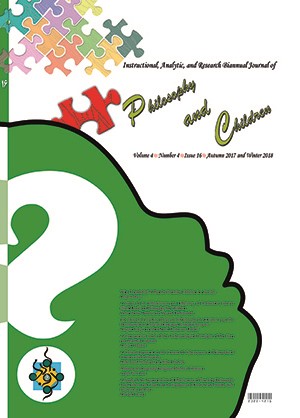-
-
List of Articles
-
Open Access Article
1 - Editor Notes
Zohreh Hosaini Khamenei -
Open Access Article
2 - Why Friendship? A Plan for Training Children in a Society
Reza Mahuzi -
Open Access Article
3 - A Study of the Effectiveness and Efficiency of Mathnawi’s Stories (Sixth Book) on Philosophy for Children
Zahra Satar Panahi Zaynab Barkhordari -
Open Access Article
4 - The Impact of Teaching Program of Philosophy for Children upon the Development of Critical Thinking in Using Cyberspace
Maryam Solgi -
Open Access Article
5 - A Comparative Study of the Anthropological Principles of Ibn Sina and Matthew Lipman
Meisam Fallahi -
Open Access Article
6 - A Critical Approach to the Content of Cyberspaces in Philosophical Communities of Inquiry
Mehrnoosh Hedayati Elham Sabery -
Open Access Article
7 - Methods of Deepening Religious Beliefs in Children
Atefeh Sowhani -
Open Access Article
8 - A Study of the Augmentation of Effectiveness of Teaching Philosophy for Children and Youth on the Happiness of First Grade Middle Girl Students in Tehran
Ma’ideh Yusufi
-
The rights to this website are owned by the Raimag Press Management System.
Copyright © 2017-2026







